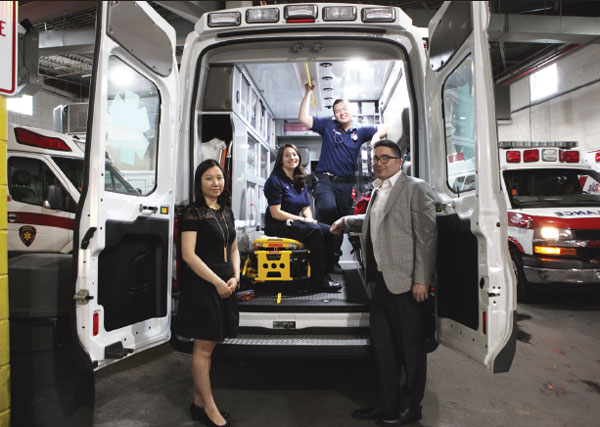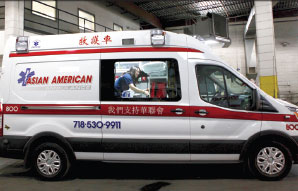Ambulance unit: healthy addition
Updated: 2016-05-30 10:59
By Hezi Jiang in New York(China Daily USA)
|
||||||||
Chinese residents in South Brooklyn have spotted two new regulars to the neighborhood who could be lifesavers.
Two ambulances emblazoned with Chinese words and staffed by Chinese-speaking healthcare workers on board now serve the community 24/7.
"[The patients] are pretty happy when they see an Asian comes up," said Nelson Chan, a Cantonese-speaking paramedic who was driving one of the vehicles on the morning of May 27. The company coded this ambulance 800 for the Chinese affection for the number 8.
Midwood Ambulance, a private ambulance company owned by an Italian-American family, is the first in New York City to provide such a service. They have a dedicated Chinese phone line, which offers dialect services in Mandarin, Cantonese, Fukienese and Taishanese.
After receiving a positive reaction from the community, the company is adding another four ambulances and recruiting more Chinese staff.
The idea of a dedicated fleet was born after Midwood had heard many heartbreaking stories in the past two years while working with clinics and hospitals in the Chinese-populated neighborhoods in South Brooklyn.
A senior Chinese couple who were very sick at home waited through the weekend to see their Chinese-speaking doctor at a neighborhood clinic only because they were reluctant to call 911 because of their uncertainty with English.
A senior man who suffered a severe stroke was carried by his sons to his Chinese physician instead of getting an ambulance immediately.
"They are very apprehensive about calling 911 because they worry about the language barrier," said Alonzo Rapisarda, director of hospital services at Midwood and the initiator of the Chinese service.
"We came to the conclusion that if we had an Asian ambulance with Chinese-speaking staff and a dispatcher dedicated to the Chinese-speaking community, we will lower their apprehension and they will be willing to access medical care faster and get treated best for their illness," he said.
"The Chinese community uses ambulances far less often than Westerners. We have to put efforts into education," said Sisi Yam, director of patient services at Midwood. A speaker of Mandarin, Cantonese and English, she spends significant time talking to Chinese neighborhood clinics and community organizations.
One of the groups Midwood hopes to educate is pregnant women.
Recently, a team of two Chinese-speaking emergency medical technicians (EMTs) delivered a baby boy in the ambulance after they learned from the father-to-be, who speaks Cantonese, that their previous baby was born very quickly.
"They immediately pulled over to the roadside," said Yam. "They wouldn't be able to react so quickly if they didn't speak the family's language.
"We want to let the pregnant women in the Chinese community know that they can call us when the time comes," she said. "It's safer, if any (traffic) situation happens on the road, and very often their insurance covers the ambulance cost. Why pay a cab?"
To patients who don't have insurance, Midwood offers a $300 flat-rate service. The company also agrees to send the patients to hospitals with Chinese-language service at their requests.
Since the launch of the program, Midwood was pleased to see a growing number of Chinese-speaking EMTs and paramedics wanting to join them. Some interested included healthcare workers at other ambulance companies.
On a recent Friday, a class of newly hired employees practiced carrying a dummy on a chair down the staircase in Midwood's warehouse. Among them, three speak Chinese.
Yam said that Midwood also will sponsor 10 young men and women from the Chinese community to receive training to work as EMTs and paramedics this summer.
Chan, who has been with Midwood for a year and a half, said it's more rewarding to work on the Chinese ambulance.
"It makes me feel like I've actually done something," he said. "They tell you about their problems and issues that you might be able to help out with, any issues, like trying to get a social worker from the hospital, and you'll be like, 'Hey, can you help this patient find a way for him to get from the hospital back home?' The language definitely helps a lot. Feels great."
hezijiang@chinadailyusa.com
|
The Midwood Ambulance team, from right: Alonzo Rapisarda, director of hospital services; paramedic Nelson Chan; EMT Jennifer Ng, and Sisi Yam, director of patient services, pose for a photo with a new ambulance dedicated to Chinese-language emergency medical care. Photos by Hezi Jiang / China Daily |
|
Jennifer Ng, an EMT at Midwood Ambulance, checks the medical equipment on a vehicle at the company's warehouse in South Brooklyn on May 27. The ambulance provides Chinese-language emergency medical care to patients from the Chinese community. |
(China Daily USA 05/30/2016 page2)
- Camps abroad offer students a new experience
- China-made world's first functional 3D printed building opens in Dubai
- Map reveals claim over islands by Manila groundless
- Racial sensitivity urged as ad causes outrage
- Regulator to launch drug pricing probe
- What is that thing? Innovative bus looks like a moving tunnel
- Chinese G20 presidency 'ambitious' in seeking solutions for global growth: OECD official
- UNICEF alarmed at refugee, migrant deaths in Mediterranean
- 35% of northern and central Great Barrier Reef destroyed
- Vintage plane crashed in Hudson River during emergency landing
- 2,000 refugees relocated on first day of major police operation
- No sign of EgyptAir plane technical problems before takeoff
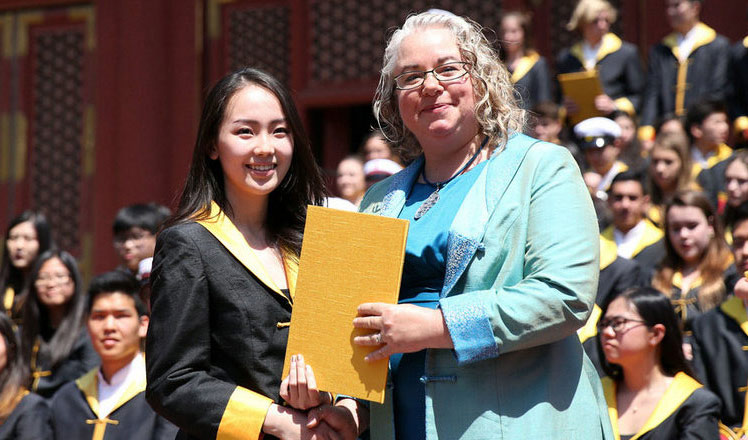
 Graduation ceremony held in Confucius Temple
Graduation ceremony held in Confucius Temple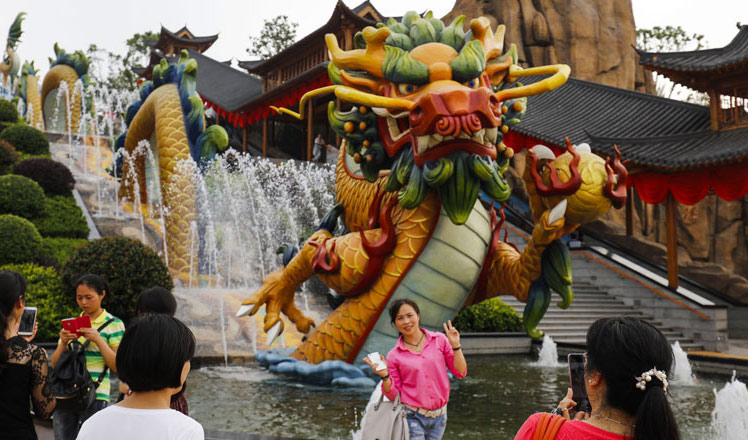
 Wanda opens theme park to rival Disney
Wanda opens theme park to rival Disney
 Fog turns Qingdao city into a fairyland
Fog turns Qingdao city into a fairyland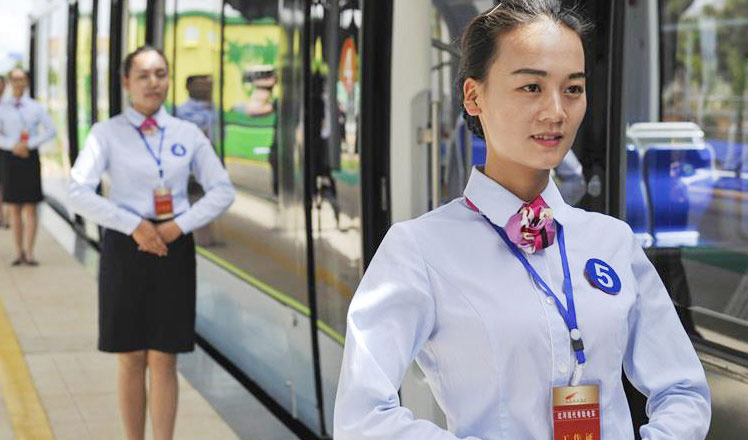
 Trams to be in trial use in SW China
Trams to be in trial use in SW China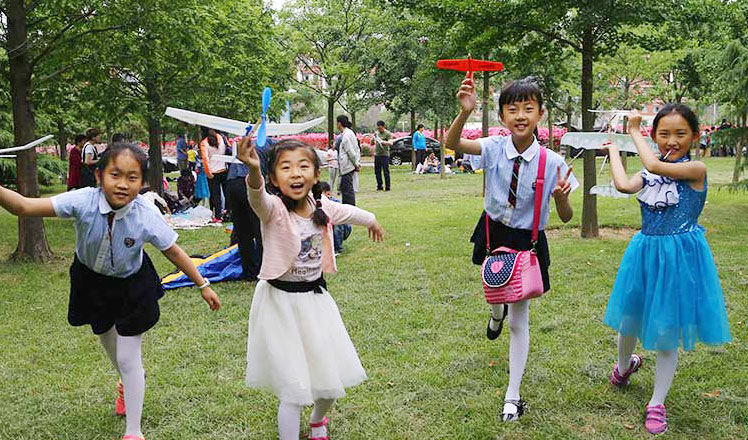
 children's Day: From cooking meal to catwalk
children's Day: From cooking meal to catwalk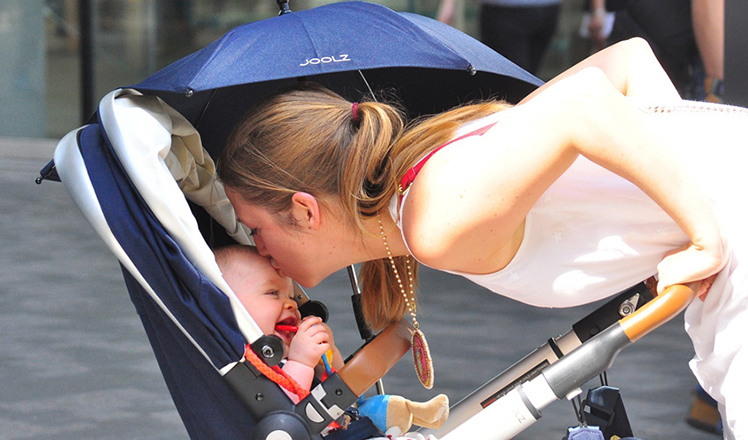
 Beijing style: People embrace the summer heat
Beijing style: People embrace the summer heat
 Ten photos from around China: May 21-27
Ten photos from around China: May 21-27
 VR, robots, mini drones: Highlights of big data expo in Guiyang
VR, robots, mini drones: Highlights of big data expo in Guiyang
Most Viewed
Editor's Picks

|

|

|

|

|

|
Today's Top News
Liang avoids jail in shooting death
China's finance minister addresses ratings downgrade
Duke alumni visit Chinese Embassy
Marriott unlikely to top Anbang offer for Starwood: Observers
Chinese biopharma debuts on Nasdaq
What ends Jeb Bush's White House hopes
Investigation for Nicolas's campaign
Will US-ASEAN meeting be good for region?
US Weekly

|

|
